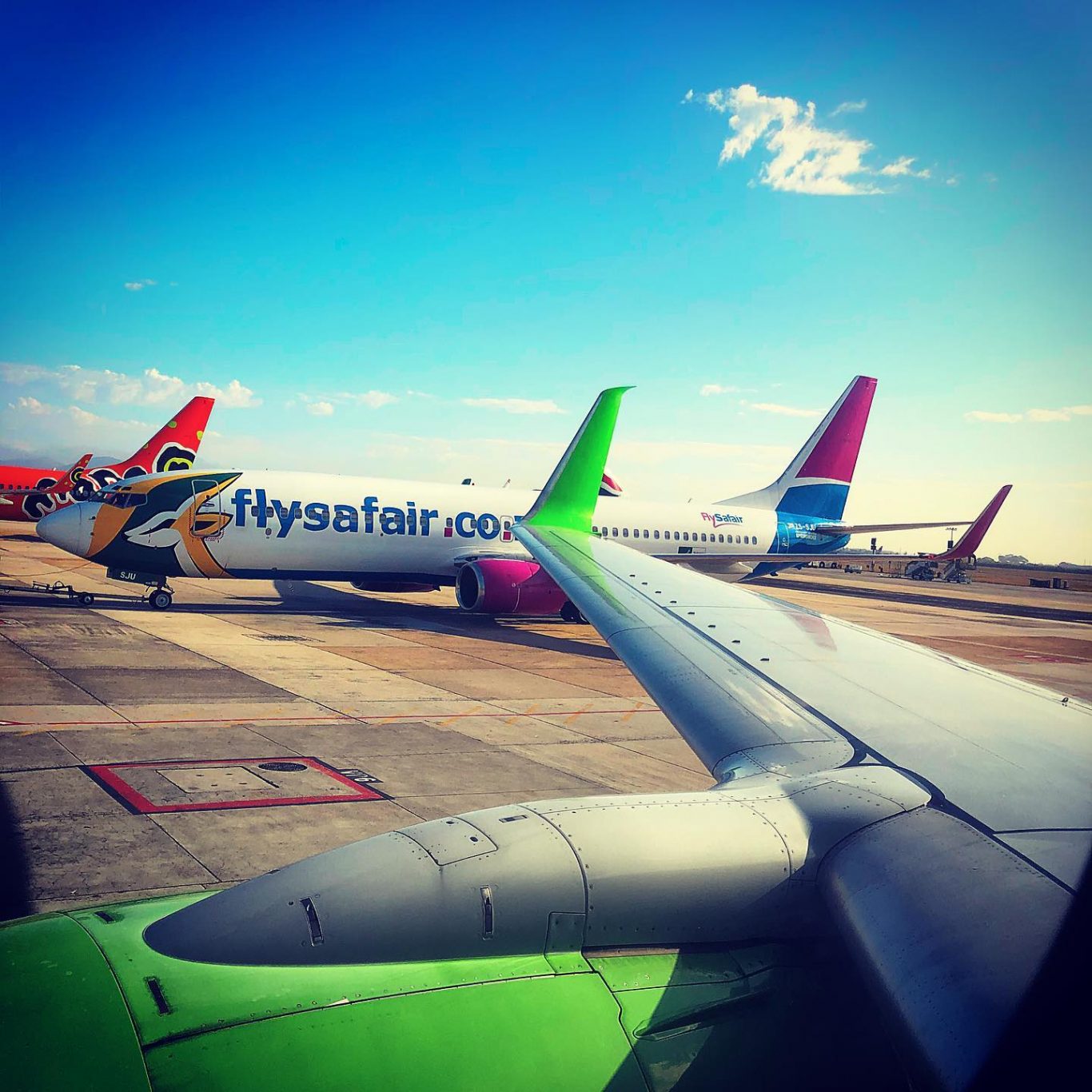COVID-19 is the scientific name of the disease caused by the SARS-CoV-2 virus. The 2019 novel coronavirus was identified in China at the end of 2019 and is a new strain of this virus that has not previously been seen in animals.
The World Health Organisation has pointed out that the containment of this virus is feasible and must remain a top priority, so it’s important that we all remain informed and do our part to prevent the spread of infections.
Staying Safe When Flying
Air travel, by its very nature, puts people in close physical proximity of strangers, which can increase your chances of contracting any contagious disease. The same is true of travel in buses and taxis or visiting shopping malls and other busy places.
While we at FlySafair are doing everything in our power to limit the spread of this and other infections, it’s essential that our customers take the necessary steps to look after their own well-being. Following are some important tips along with essential information from the World Health Organisation on how to stay safe.
For more information about our policies and procedures concerning the Coronavirus visit our COVID-19 Help Centre
Safe Travel Tips
- Don’t fly if you are feeling ill. Having a compromised immune system already increases your risk of contracting the virus and puts other people at risk. Call us to change your flight reservations on 087 357 0030.
- Regularly washing your hands is one of your best defences against COVID-19. The WHO recommends using an alcohol-based hand sanitizer product, and it’s a great idea to keep a travel-sized bottle on you at all times.
- The WHO advises that face masks are unproven as a defence against infection, but that people who are ill are advised to wear them. If you would feel more comfortable, you are welcome to wear a mask while flying, but please be sure that you follow proper procedures for handling and disposing of your mask as explained below.
- Make sure that you are informed about how the virus spreads, and what the symptoms are so that you can be confident that you are taking the best care of yourself.
What’s Happening At The Airports
South Africa’s health authorities have been hard at work with the aviation community to limit the spread of the Coronavirus.
More information on steps being taken by the airports can be requested from the airport in question, but you are likely to see staff wearing protective gear, more hand sanitizer stations, increased cleaning procedures and lots of awareness.
FlySafair is also working hard to ensure regular deep cleaning of aircraft with appropriate cleaning materials. We are encouraging customers to wash their hands regularly and sharing as much information with our staff and customers as we can.
It’s essential that we all do our individual part to combat the spread of Coronavirus.
What We Are Doing
FlySafair aircraft are carefully cleaned in line with the highest standards in aviation health and safety practices. Still, the recent outbreak of COVID-19 has called for us to step up measures to ensure maximum prevention of infection. Here are some of the steps that we have undertaken to keep customers and crew safe from infection during flight.
1. All aircraft undergo a deep clean every evening to decontaminate all surfaces using cleaning products that are designed to combat the COVID-19 virus.
2. During the day, between flights, our cleaning teams are conducting quick sterilisations to refresh the cabins, again using cleaning solutions designed to combat the virus.
Air Quality
While Corona is not an airborne disease, many customers around the world have cited the quality of air within the cabin of an aircraft as a major source of concern.
FlySafair’s aircraft are equipped with a sophisticated air recycling system that completely renews the cabin air every few minutes. This system operates across blocks of seat rows, ensuring all parts of the aircraft receive the same quality of fresh air simultaneously.
This system employs High-Efficiency Particulate Air (HEPA) filters that are identical to those used in operating theatres. These filters successfully remove 99.999% of even the smallest viruses, including those measuring just 0.01 micrometres. The coronavirus family measures between 0.08 and 0.16 micrometres and therefore extracted by the HEPA filters very effectively.
Transmission Of Corona
Transmission of Coronavirus occurs via direct physical contact with infected respiratory droplets. Specifically, it’s key to avoid the transfer of these infected droplets into the eyes, nose, and mouth.
2-14 days is the estimated incubation period of the disease.
Prevention Of Infection
Every person is responsible for their own health, and it’s important to know how to protect yourself against infection.
- Try to avoid direct physical contact with sick people.
- Wash your hands regularly, for at least 20 seconds, using soap and water or an alcohol-based hand sanitizer.
- Try to avoid touching your face unless you’ve just washed your hands properly.
Symptoms
Symptoms of Coronavirus are very similar to the common cold and flu. You are advised to consult with a healthcare practitioner if you are concerned that you might be infected.
Using Masks
The World Health Organisation has advised the following on the use of face masks. More information is available here.
If you are healthy, you only need to wear a mask if you are taking care of a person with the suspected 2019-nCoV infection.
Wear a mask if you are coughing or sneezing
Masks are effective only when used in combination with frequent hand-cleaning with alcohol-based hand rub, or soap and water.
If you wear a mask, then you must know how to use it and dispose of it properly.
